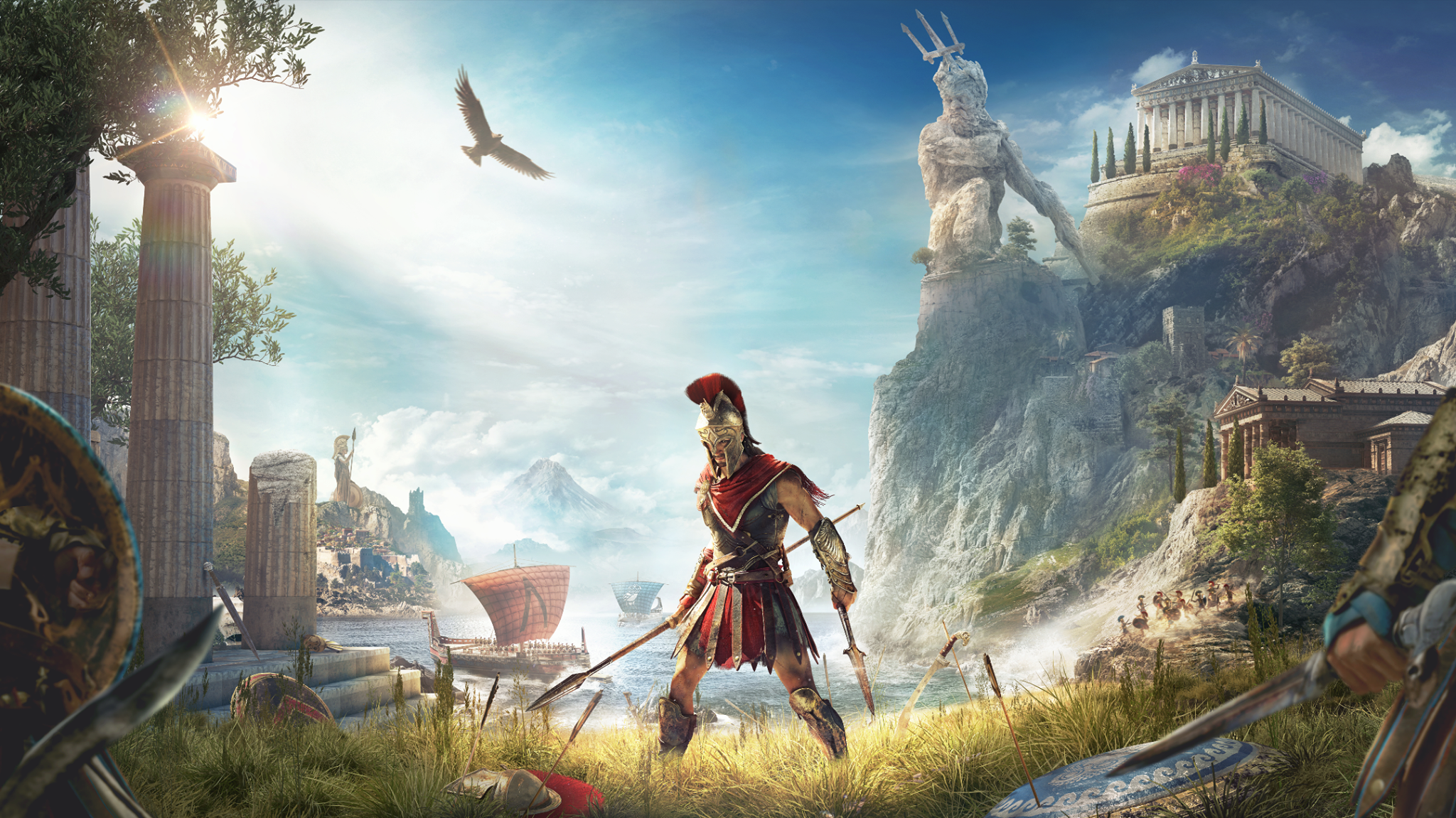With last year’s Assassin’s Creed: Origins, the franchise took a pretty big step towards becoming a full blown action RPG. This year, with Assassin’s Creed Odyssey, Ubisoft continues to work towards that goal with a slew of new gameplay tweaks and narrative changes.
Assassin’s Creed: Odyssey takes place in Ancient Greece in 431 BC (about 400 years before Assassin’s Creed: Origins, for those who are taking note). You’ll be able to play as either Alexios or Kassandra (a male or female) and follow a narrative path that is slightly altered depending on your protagonist choice. While I only got a chance to play as them in their adulthood, I also got a glimpse of Odyssey’s beginning – with the pair as children who’d been betrayed by their family. As far as the modern day storyline goes, this follows the story of Layla Hassan on her quest for artefacts.
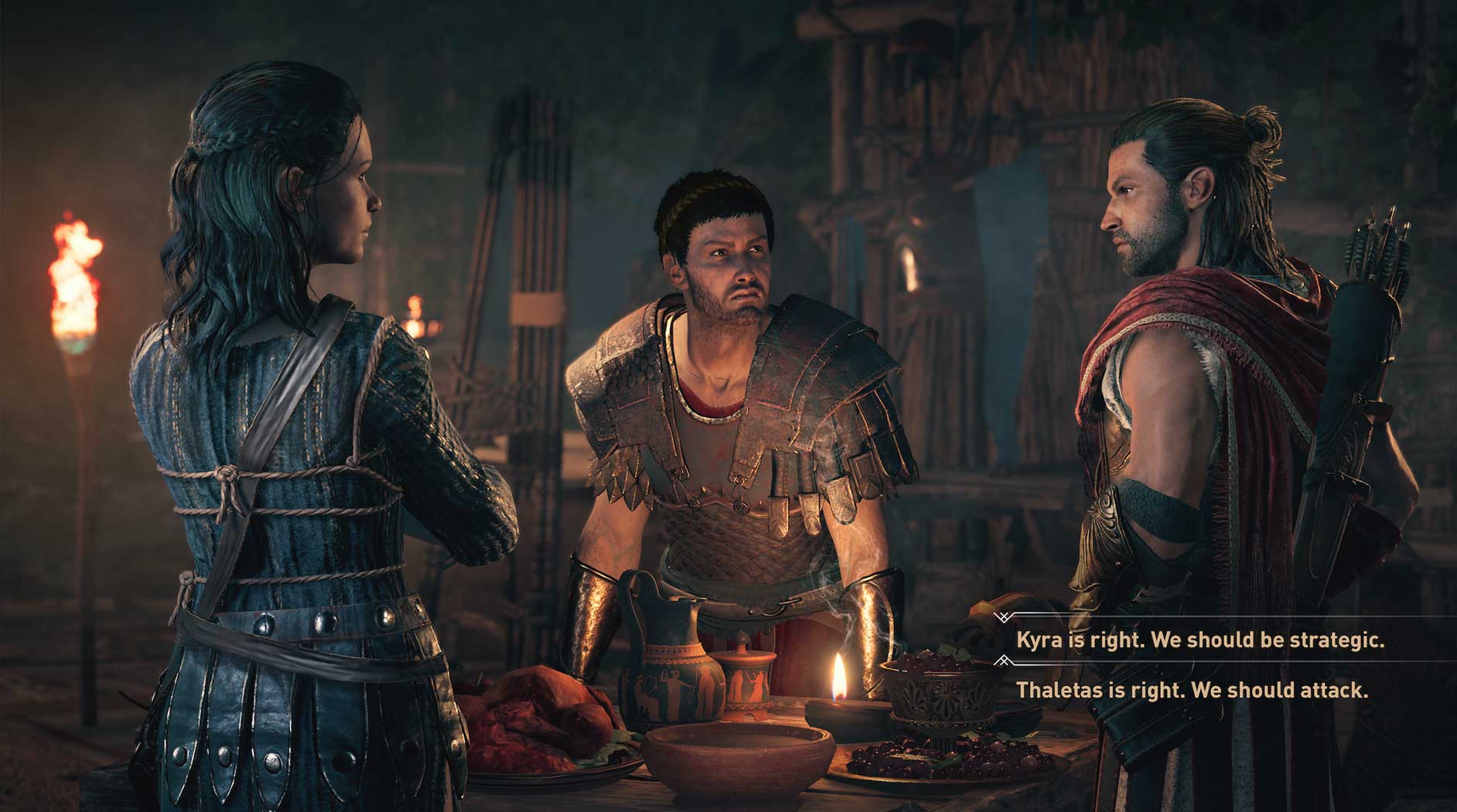
After deciding to play as Kassandra, it immediately seemed as if I was playing through a completely different Assassin’s Creed game altogether, given the varied dialogue that I was having with men and women throughout Mykonos. While I didn’t get a lot of time to play as male protagonist Alexios, I was intrigued by the noticeable changes in dialogue options presented and how that could affect the narrative choices given in the game compared to Kassandra.
This is one of the major changes in Odyssey, and something that Ubisoft believes pushes the game toward becoming a fully-fledged RPG. Whenever you engage in dialogue with any of the NPCs, you’ll be given a wealth of choices in order to push the conversation forward, which will apparently trigger or change certain events later on in the story. I was constantly provided with choice before each mission – whether that was attacking certain bases, sitting it out and waiting, or siding with one character over another. I really felt that whilst I was obviously playing a set mission, I was at least having some impact over what direct path I chose to pursue.
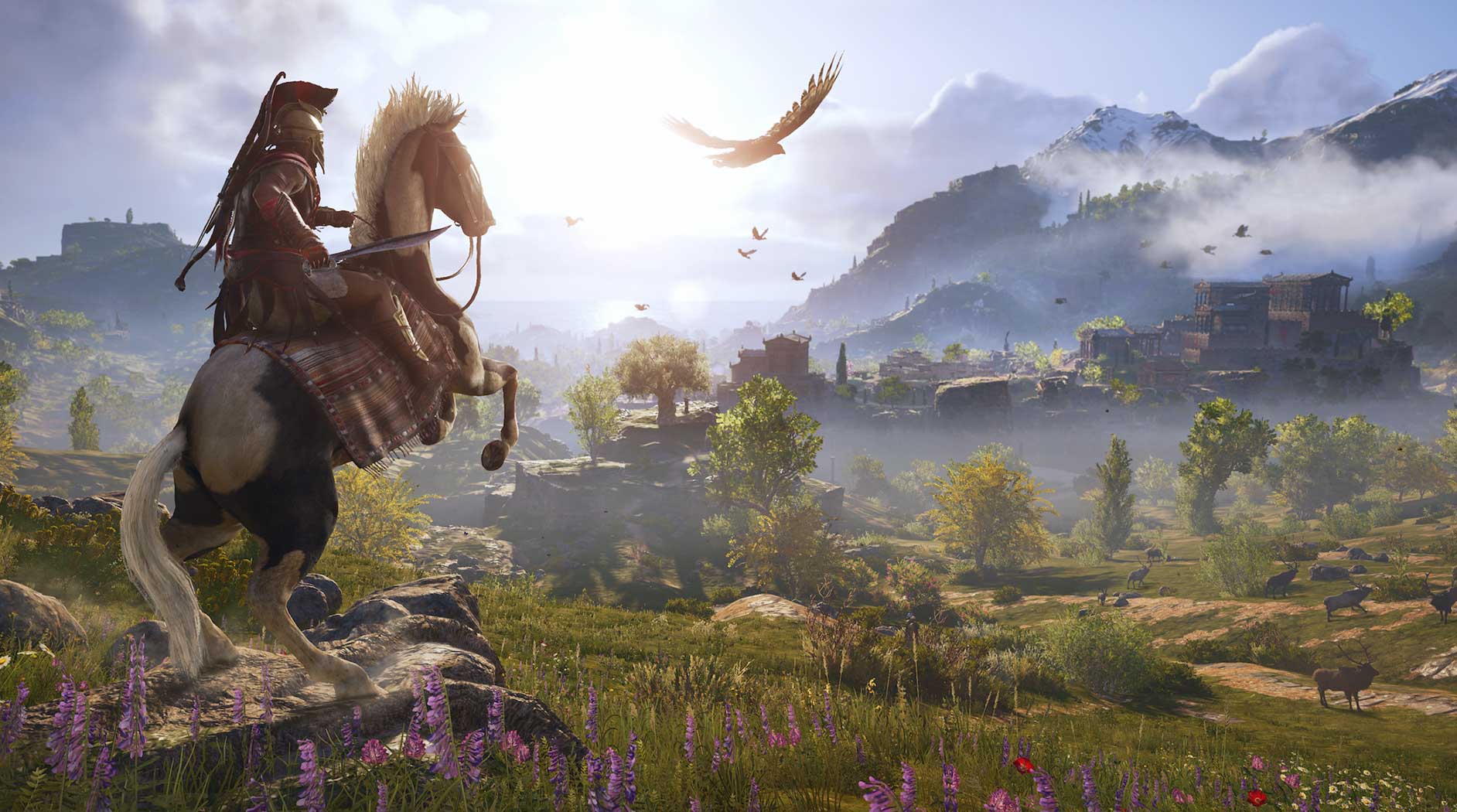
Obviously, Greece is completely different to Origins’ setting of Egypt. There’s lush green all over, vibrant cities to explore, and stunning beaches. It’s all beautiful to look at and involve yourself in, allowing you to seamlessly go from frolicking in the sand to swimming underwater.
Another major addition to the game is nation power. When you’re assigned a target to kill, you’ll essentially be able to lower that person’s army of soldiers (or nation power) by killing soldiers and completing certain quests. While you’re still able to run right in and assassinate that target, it may be a bit tougher than if you’d weakened their power beforehand. This is another nod to the choice that Odyssey is clearly attempting to give to the player, and it’s well appreciated.
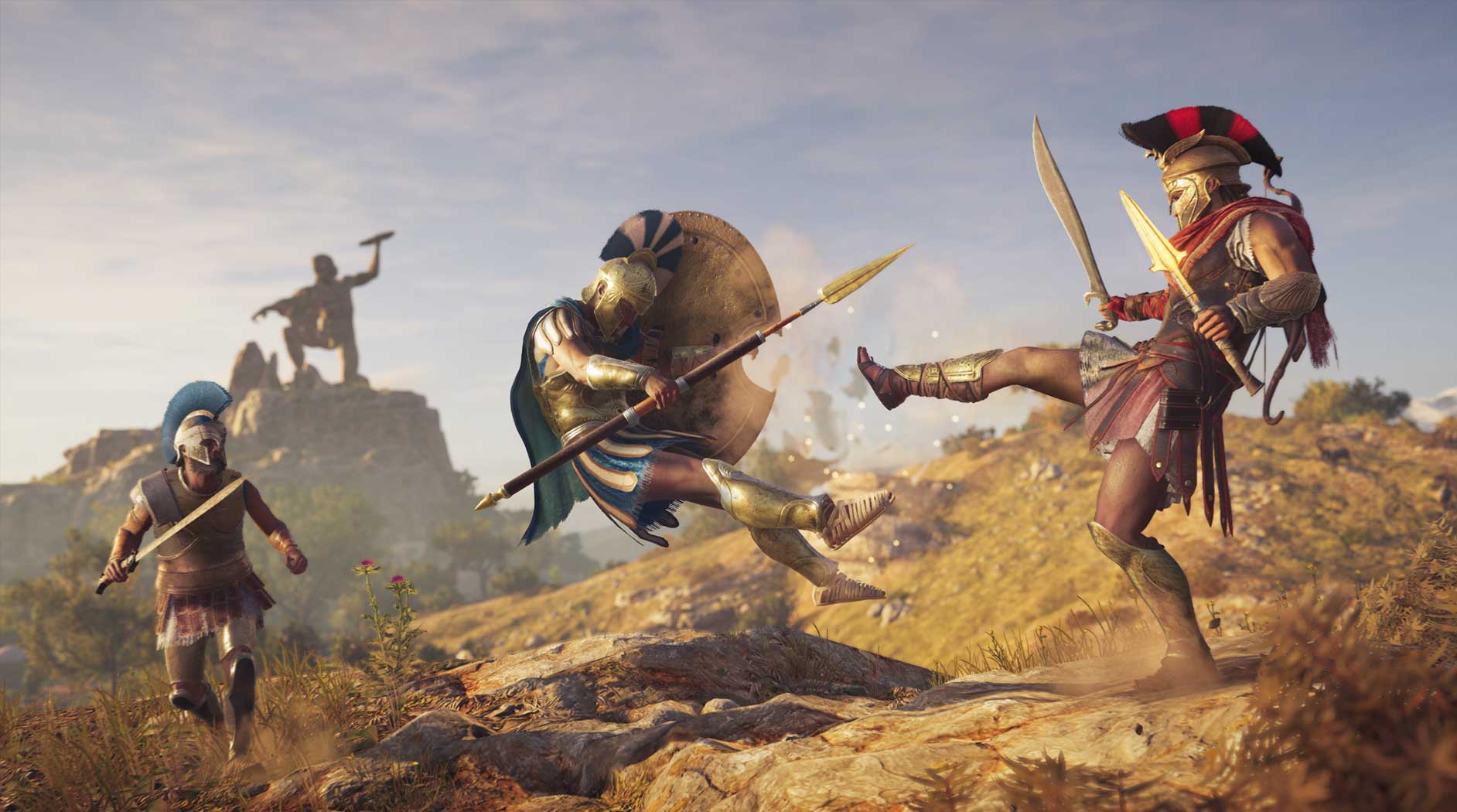
The combat for the most part feels fairly similar to Assassin’s Creed: Origins, but the parrying system has been improved and remapped to the left button. Using it is crucial to filling up your ability meter, which is a brand new addition to the game’s combat system.
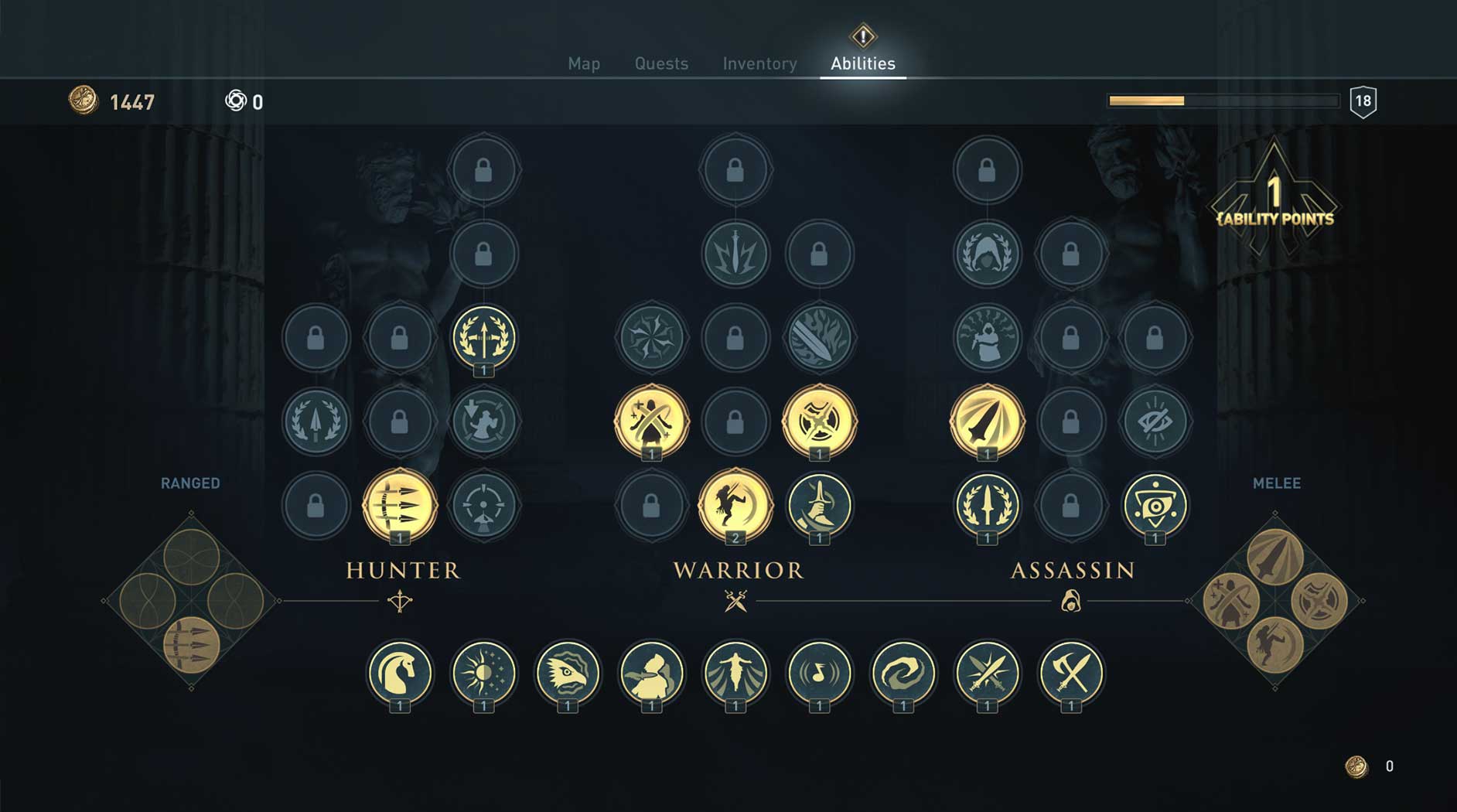
In terms of abilities, there are warrior abilities, hunter abilities, and the assassin abilities. Basically, pulling off attacks and successfully parrying will allow you to build your ability meter and pull off abilities such as kicking your enemies, using their shield against them, or even replenishing your own health. I found that using these abilities are fairly essential to staying alive, and they were a great balance of offence and defence – adding a level of strategy to the combat.
Naval combat has also returned and seems to play a bigger part than ever. You’re able to upgrade your ship’s hull, weaponry and mastering device, and perfecting the naval combat seems like it’ll play a massive role in the game. While I know that a lot of people are a bit against naval exploration and battling, it definitely felt good to have it back. I was seamlessly able to engage in a fully open-world naval battle before quickly returning to shore and heading off to do something else, which was very cool.
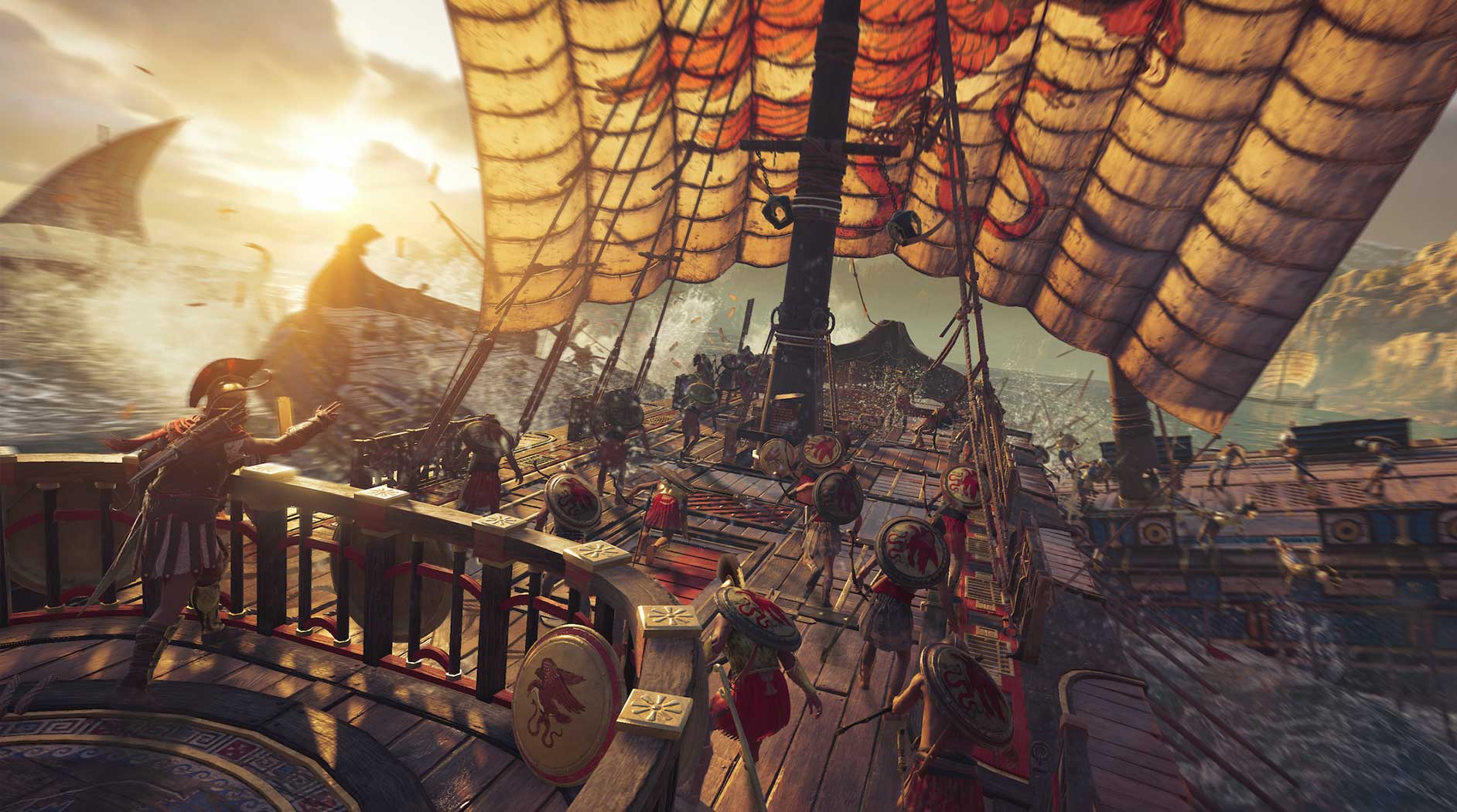
Another major new part of Assassin’s Creed Odyssey is the conquest battles, which are essentially massive 150 v 150 battles that take place on a beach. You’ll need to fight your way through battle enemies before taking on a series of bosses during the conflict, and it all feels wonderfully epic – almost what you’d expect a Spartan war to look and feel like.
Assassin’s Creed Odyssey has done more than enough to get me excited for the game. While I was initially unsure about coming back to the franchise so soon after Origins, the change in scenery (which makes a massive difference), improvements to combat, reintroduction of naval warfare and changes to the way the narrative is delivered has made me a believer in Assassin’s Creed returning for a second consecutive year. The game’s apparently been in development for three years, and is the final step in making Assassin’s Creed a proper, narrative-driven Action-RPG. After an hour of hands-on time, I’m all for it.


